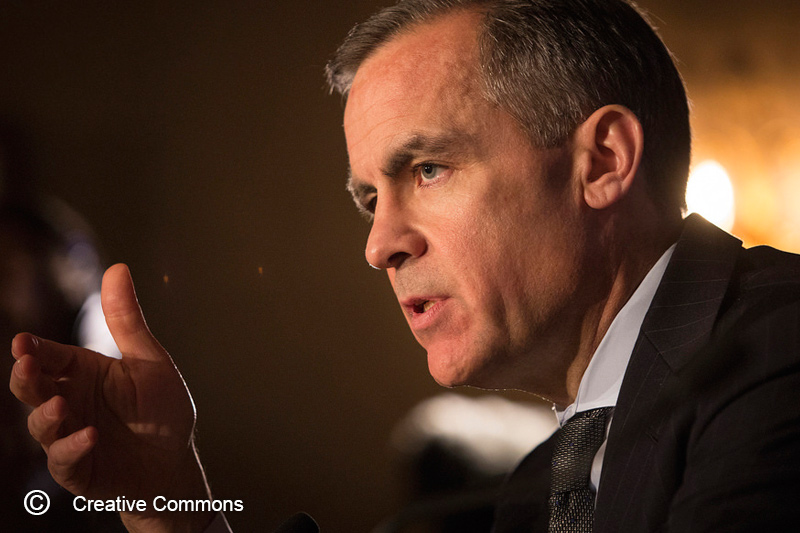(Bloomberg) -- Mark Carney won’t rule out raising interest rates again before he leaves the Bank of England next June, though he acknowledges that Brexit could change everything.
After the BOE lifted its key rate on Thursday, some businesses and economists blasted policy makers for being too hasty in acting before Britain knows what deal -- if any -- it can strike with the European Union. Carney’s message as governor is that there’s no reason to deviate from gradual tightening.
“The important thing is that this is the right decision for the economy given the track that it’s on,” he told Bloomberg Television’s Francine Lacqua in an interview. “Certainly there could be circumstances where it would make sense to adjust policy. But I think we’ll all know what those circumstances are on the Monetary Policy Committee, and at that point we’ll take them into account.”
The BOE has opted to work on the assumption that Brexit will be smooth, which means the U.K.’s economic expansion will continue and tight labor markets and limited spare capacity will put upward pressure on prices.
On that basis, policy makers lifted rates for only the second time since the global financial crisis, to 0.75 percent, and Carney said he expects a few more hikes over the next few years. His term finishes at the end of June 2019, three months after the U.K. is set to formally leaves the EU.
“There’s a good chance they’ll go once more before Carney’s term ends,” said Hetal Mehta, an economist at Legal & General Investment Management. “There’s a decent chance they’ll try and do one hike in May on the basis there’s a transition period that kicks in following the official Brexit date in March. They’d probably try to normalize policy if they can.”
At the same time, the BOE has acknowledged and prepared contingency plans for the risk that Brexit is disorderly. With EU and U.K. officials still unable to resolve key issues, that’s a a real possibility, which might mean that Carney has already seen his final rate hike.
“There’s a pretty good chance it’ll be his last,” said Andrew Goodwin, an economist at Oxford Economics. “The story they’re telling about driving up wages and inflation hasn’t borne out so far and it won’t in the next year either. It’ll be difficult to justify hiking.”
If so, this could be the last rate increase Carney pushes through in any role. The former Bank of Canada head hasn’t said whether he’ll remain in central banking after he leaves the BOE and has remained coy when asked about his future, deflecting questions about whether he will definitely return to his native country.
He also shows no sign of wanting to stay any longer in his current role. He’s already extended his planned five-year term by 12 months to help guide the economy through the Brexit negotiations. Asked if he’d do so again, he said talks have to conclude well before his term is up and “nothing’s changed” about his plans.
In an unexpected sign of how united the nine-member policy committee is around the need for higher rates at this time, Thursday’s decision to raise was unanimous. But that doesn’t mean that the MPC’s current view won’t be reshaped by new developments.
“There’s a possibility for one more move before he leaves the scene, but it’s not by any means a done deal,” said Peter Dixon, an economist at Commerzbank AG (DE:CBKG). “The likelihood is the bank will revisit in May, once the Brexit deadline has passed -- and assuming the economy hasn’t fallen off a cliff.”
